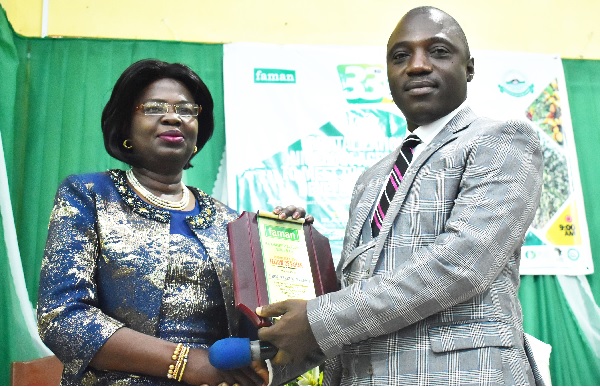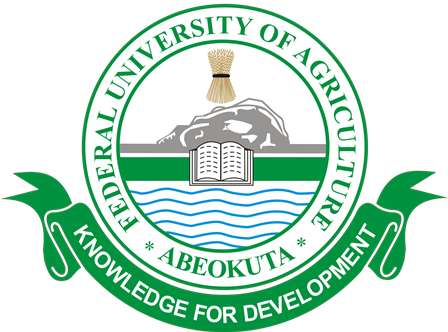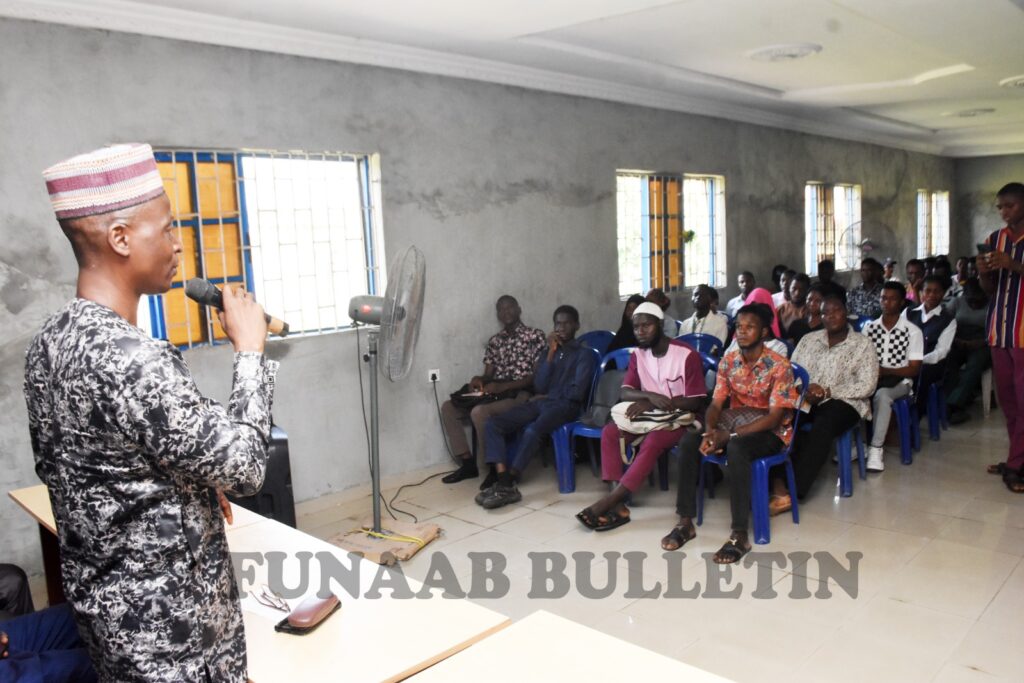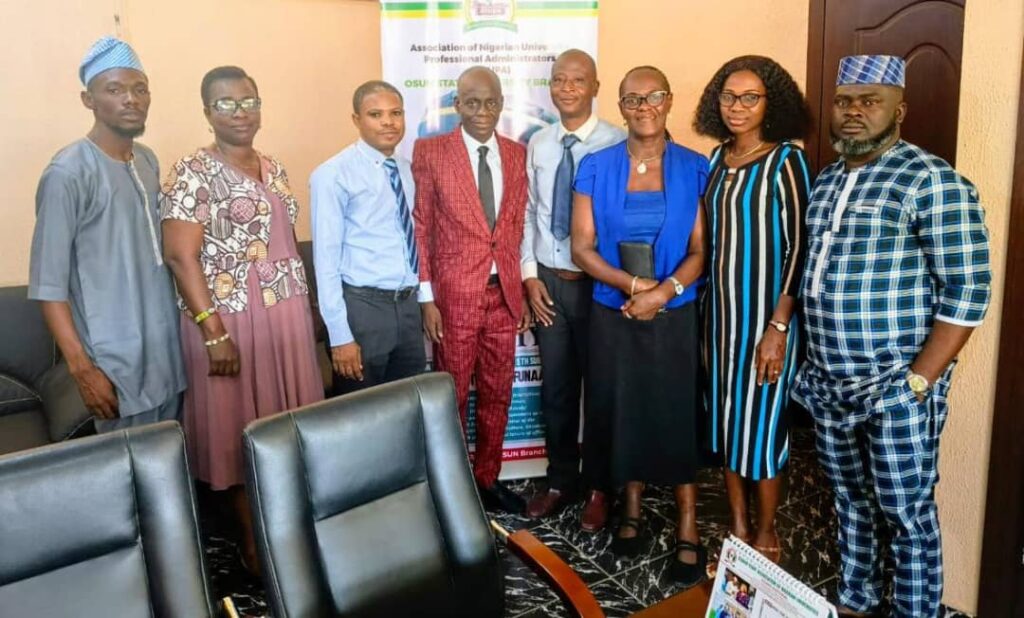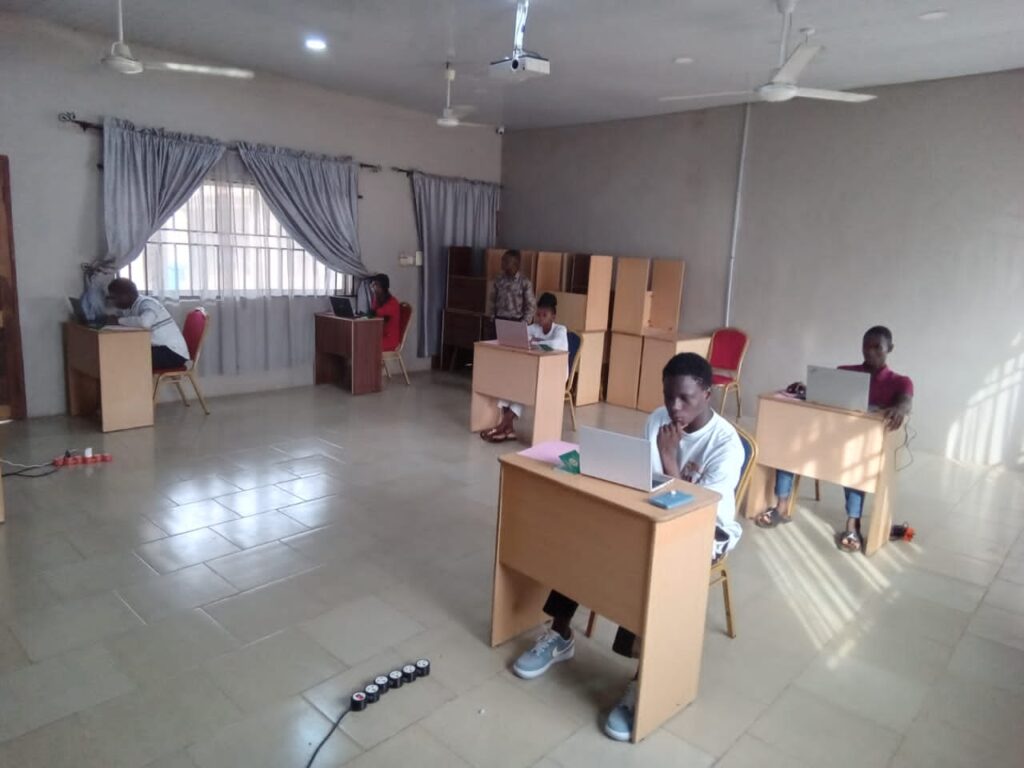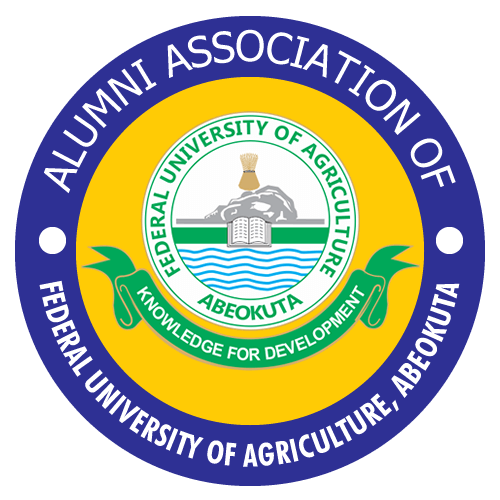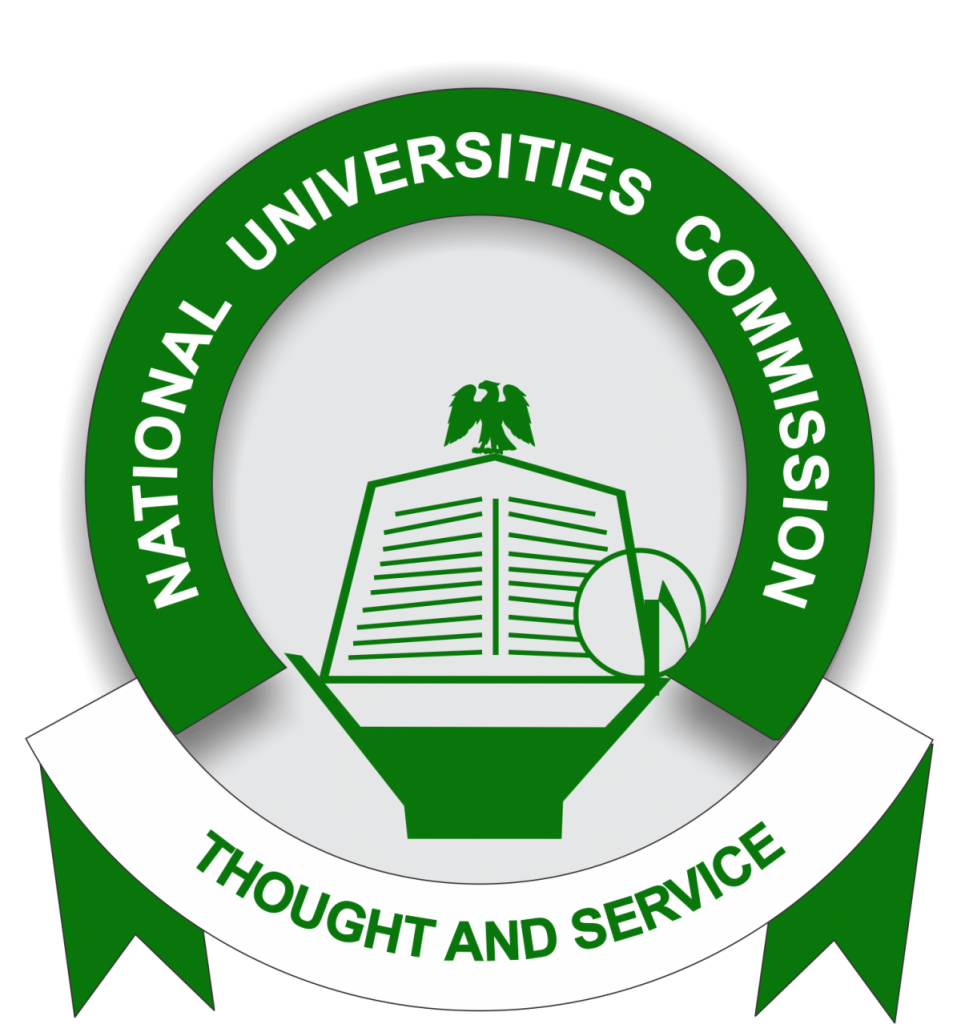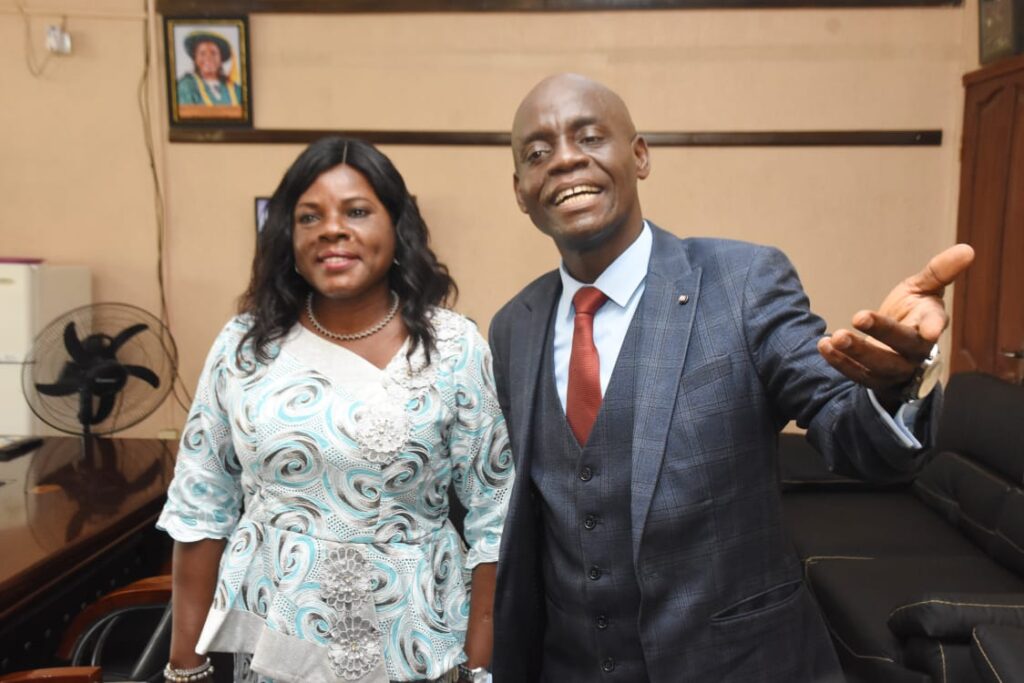The Vice-Chancellor, Prof. Felix Salako has commended the Farm Management Association of Nigeria (FAMAN), as the University hosted FAMAN’s 33rd National Conference with the theme, “Revitalisation of Nigerian Agriculture to Meet the Sustainable Development Goals”, describing it as apt in addressing the agricultural challenges facing the country. The Vice-Chancellor, who was represented by the Deputy Vice-Chancellor (Academic), Prof. Morenike Dipeolu, noted that the conference was relevant at this time as it fits into one of the curriculum activities of the University. According to him, as a specialised University, FUNAAB had always advocated for the development of science and technology, which play major roles in the social economy and cultural development of the country.
On the University’s contribution to the advancement of agriculture, Prof. Salako disclosed that FUNAAB had developed the first indigenous chicken known as FUNAAB Alpha, which is comparable to international agriculture chickens in terms of egg and meat production. He said the University had developed and popularised the table dry odourless Fufu for Nigeria, perfected the production of High Quality Cassava Flour (HQCF) for inclusion into wheat flour for bread and confectionery industries, as well as mechanised its agricultural farming system. Prof. Salako, who noted that FUNAAB was hosting the conference for the second time; the first time being in 2001, stating that this showed the importance the University placed on the advancement of agriculture.
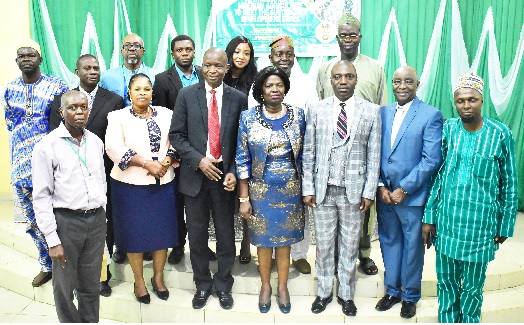
The President of FAMAN, Dr. Damian Agom said the aim of the annual event was to help participants network, share experience, meet colleagues, compare notes, learn from the papers presented, brainstorm on issues of national concern and also do justice to the theme and sub-themes for the year. Dr. Agom added that “The choice of Abeokuta as the host for this years’ conference is a home-calling for the association because in 2001, we had a very successful conference in Abeokuta, whose memories were still very fresh in our minds. Since then, we have had very active participation of the FUNAAB community in the association. It is my expectation that we would not wait for another 18 years before coming back again”.
The FAMAN President emphasised that this year’s conference, tagged “Revitalisation of Nigerian Agriculture to Meet the Sustainable Development Goals”, was loaded with expectations that would lead to the desired economic development in Nigeria through agriculture as it enables the nation to meet the Sustainable Development Goals (SDGs) ahead of the target date. He said the theme was carefully-chosen to meet the challenges as they concern agriculture and economic development in Nigeria since the focus on SDGs was to put the sector on track to achieving the goals for the country.
According to him, FAMAN, as a professional association, had over the time, maintained a link with stakeholders and practitioners in the fields of management of farms and production related to agriculture, bringing together participants from among the farmers, especially, those coordinated by the Central Bank of Nigeria (CBN) and staffers of Ministries, Departments and Agencies (MDAs). Similarly, FAMAN does not operate in isolation as the association usually maintained affiliation with the African Farm Management Association (AFMA) and the International Farm Management Association (IFMA), he said.
Delivering the lead paper titled “Revitalisation of the Nigerian Agriculture to Meeting the Sustainable Development Goals (SDGs)”, a renowned agricultural economist, Prof. Peter Okuneye noted that Nigeria was the world’s second-largest producer of cocoa, largest exporter of palm kernel and largest producer/exporter of palm oil, leading exporter of cotton, groundnut, rubber, as well as hides and skins. He also said the agricultural sector had contributed over 60% to the GDP in the 1960s despite the reliance of Nigeria’s peasant farmers on traditional tools and indigenous farming methods, as they produced 70% of Nigeria’s agricultural exports and 95% of its food needs.
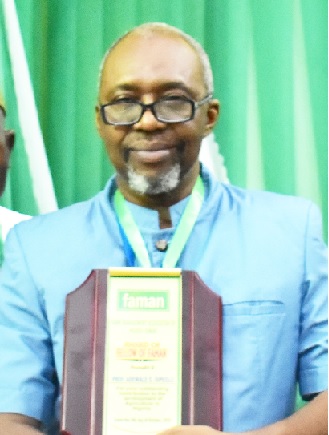
Prof. Okuneye explained that the relevance of agriculture is in the areas of food security, employment generation, farm income, import substitution, foreign exchange earnings, and raw materials generation, among others. According to him, the key global goals can be achieved through increased agricultural productivity, agricultural value chain development and expansion, investment in the infrastructural and rural development, facilitating access to market and good governance, post-harvest food losses and wastes, good agricultural practices, micro-economic policy management, policy on trade, building and enhancing resilience to weather shocks and reducing negative externalities, research, development and extension services as well as credit and financing.
However, Prof. Okuneye said the major constraints to revitalisation are policy summersaults and policy inconsistency, missing out on integration potential, infrastructural deficits and technological gaps, economic recession, and humanitarian crisis and low commitment to economic diversification. He gave prescriptive measures in this regard to include intensification of environmentally-sustainable and economically-viable agriculture, provision of extension services and regular training, widening the scope of agricultural producers, good feeder roads and other facilities, support for rural and resources poor farmers, access to market, and market information for agricultural produce.
Corroborating him, the Permanent Secretary, Ogun State Ministry of Agriculture, Mrs. Abosede Ogunleye, opined that there was a need to prioritise agriculture in a move to contribute to the revitalisation of SDGs while also balancing social economy and environmental sustainability. Mrs. Ogunleye said the State Governor, Prince Dapo Abiodun is interested in the area of agriculture and was ready to empower farmers in the state, adding that the government would assist all the smallholder farmers, and youths that do not have anything doing.

